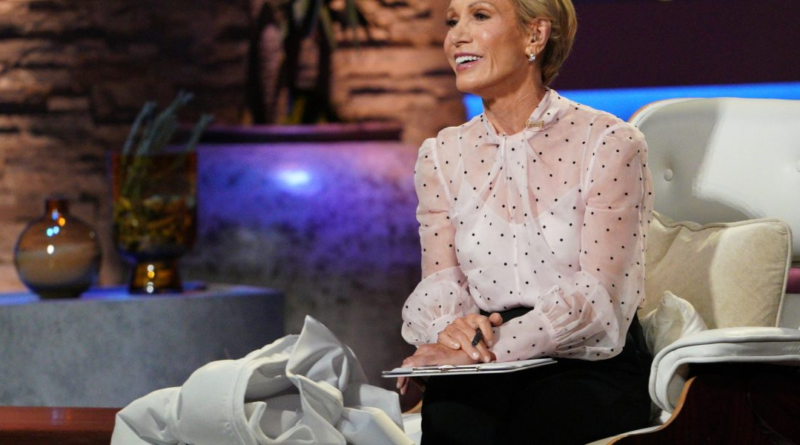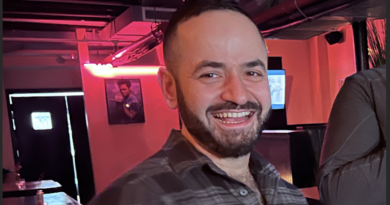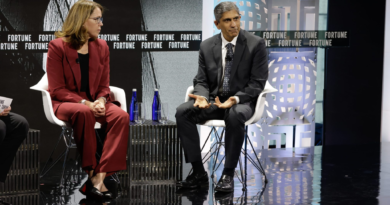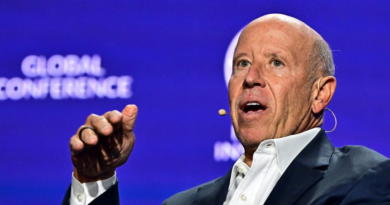Shark Tank’s Barbara Corcoran says older job applicants should interview with the energy and enthusiasm of younger workers
At 74, Barbara Corcoran is no stranger to age-related bias. After all, the founder of real estate giant the Corcoran Group shot to stardom as an onscreen investor on ABC’s Shark Tank, which premiered when she was 60—nearly retirement age.
In a broadcast shared exclusively for Corcoran’s Patreon subscribers, the entrepreneur fielded questions from fans and followers about work, life, and careers. The first such question concerned ageism in the workplace.
“Ageism is a problem, and I’d be lying to you if I said, don’t worry about it, this is how you fix it up,” Corcoran told the livestream viewers. Job seekers over 50 simply have a tougher road, she said; most hiring managers hesitate with older applicants, and often see if they can find someone younger instead.
Workers’ best bet at sidestepping the problem is to show up with the energy and vitality that young people, stereotypically, have in spades. “Put your best foot forward,” Corcoran advised. “The reality is, you’re not going to get all the interviews. I hate to admit that, but it’s really, really true.”
But when the 50-or-older crowd does nab an interview—whether over Zoom or in person—they should come prepared and powerful. “Vitality is what fools an employer,” Corcoran said. “If you walk in there vital, full of life and enthusiasm, they’re going to forget that you’re 53 and think you’re acting younger and be more attracted to you.”
That vitality also extends to self-presentation. “Simply look your best and put that [age insecurity] to the side,” she went on, explaining that it gives you a better shot because you’re not focused on it.
Corcoran herself hires many older workers, she said, and she’s found that they often have “much more wisdom” than their greener counterparts. “There’s no circumstance that they run into that they haven’t seen before, and have a solution for, so [they need] a lot less training,” she said. “Be aware of that: You have a lot more life experience and judgment.” (The data bears this out; one 2014 study found that older people could be better thinkers, owing to the “lifetime of knowledge” they can fall back on.)
But don’t let your reputation or experience precede you, she cautioned. “Just make sure you really dress up and look the part of somebody energized,” she said. “That’s the way you should be conducting an interview. That’s how you fight [ageism] very well.”
The dangers of ageism
It’s never been more difficult to find work as an older American, and biases have remained strong despite a rapidly aging workforce. The Bureau of Labor Statistics estimates that this year, a quarter of the workforce will be older than 55, and of that group, a third will be over 65, the typical retirement age.
Our cultural fixation on youth—exactly like Corcoran described and recommended appealing to—is hardly innocent and has been shown to negatively impact older people politically, economically, and socially.
The bad news is that ageism, discrimination, and age-related bias don’t just stem from younger folks; it can be self-directed too, with equally bad outcomes.
Per a University of Michigan study, more than four in five adults aged 50 to 80 experience ageism in one or more forms every day, and those who regularly experience more forms of ageism are more likely to suffer worse physical and mental health.
While Corcoran hasn’t spoken much about the ageism she’s personally faced, older women tend to bear the brunt of age-related bias, especially as they approach menopause. In the workforce, “there’s a much higher bar for women to appear younger,” Heather Tinsley-Fix, a senior advisor of employee engagement at AARP, told Fortune’s Alexa Mikhail. “Women face a much higher bar with regard to ageism; they experience it earlier and more frequently than men.”
Though it’s impossible for any individual worker to single-handedly upend a system so biased against them, maybe Corcoran’s advice to lean into enthusiasm and vitality isn’t bad advice—no matter how old you are.




